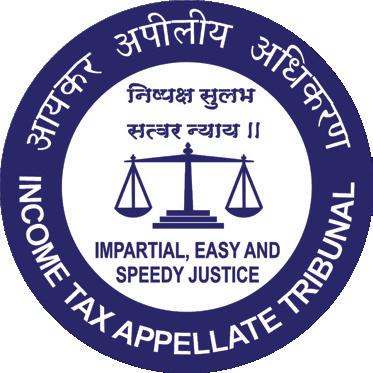ANGEL TAX
How to determine the value of unlisted equity shares and convertible preference shares?








The Central Board of Direct Taxes (CBDT) has issued1 the notification amending Rule 11UA that prescribes methods for the valuation of investments made by resident and non-resident investors in closely held companies (e.g., start-ups). The valuation helps determine if the Angel Tax will be imposed on start-ups. Earlier, the board released a draft rule and requested the stakeholders/general public to provide suggestions/ comments on it.
Angel tax is imposed on unlisted companies that receive share application money or premiums from their investors over the fair market value of the unquoted equity shares. The tax was first introduced through the Finance Act 2012, under clause (viib) of Section 56(2). Originally, the provision applied to share application money/premium received from resident investors. The Finance Act 2023 expanded the scope of the provision to include share application money/ premium received from a person, irrespective of his residential status. With this change, excess share application money or premium received from nonresident investors may also be subject to angel tax.



The provisions of Section 56(2)(viib) apply if all of the following conditions are satisfied:
It applies to a closely held company (a company other than the one in which the public is substantially interested);
The norms for computing the FMV of shares are prescribed under Rule 11UA of the Income-tax Rules, 1962. The erstwhile Rule provided only two approaches for determining FMV: the Discounted Cash Flow (DCF) method and the Net Asset Value (NAV) method. Keeping these two methods intact, the amended Rule has included new methods and benchmarks for valuing shares. These methods and benchmarks for determining the fair market value of unquoted equity shares and compulsorily convertible preference shares (‘CCPS’)are as follows:
The various valuation methods and benchmarking provided in Rule 11UA are as follows:
Under the Net Asset Value method, the value of unquoted equity shares is determined based on the company’s net worth. The net worth is calculated by subtracting the liabilities of the company from the assets. This method considers the company’s balance sheet to ascertain the fair market value of the shares.
Under the DCF method, the FMV of unquoted equity shares is calculated as the sum of the present values of all future cash flows the company is expected to generate, discounted to the present day at a risk-adjusted discount rate. The discount rate reflects the time value of money and the risk associated with investing in the company.
The Rule provides that a Merchant Banker shall determine the FMV of unquoted equity shares per the DCF method.
It provides that if a Venture Capital Undertaking receives any consideration for the issue of shares to a Venture Capital Fund, Venture Capital Company or Specified Fund (Category I or II AIF), then the price of the equity shares corresponding to such consideration may be taken as the FMV of the equity shares issued to other investors.

This benchmarking is allowed if the following two conditions are satisfied:
The consideration from shares issued at FMV does not exceed the aggregate consideration received from the VC Fund, VC Company or Specified Fund; and
VC Undertaking has received consideration from VC Fund, VC Company or Specified Fund within 90 days before or after the date of the issue of shares to other investors.
On December 01, 2023, VC Undertaking receives share application money of Rs 20,00,000 from a VC Fund for the issue of 1,000 shares at the rate of Rs. 2,000 per share. The shares are allotted on December 15, 2023 and credited to Demat account on December 20, 2023. The VC Undertaking can issue up to 1,000 shares at Rs. 2,000 per share to any other investor during the period between September 03, 2023 and February 29, 2024, i.e., within 90 days before or after the date of receipt of consideration (share application money) from VC Fund.
The amended Rule introduced five new methods to compute the fair market value of the unquoted equity shares by the Merchant Banker. These new methods can only be used to determine the FMV of shares issued to nonresident investors.
The Comparable Company Multiple Method (CCMM) is commonly used in financial analysis and investment valuation to determine the worth of a company’s shares in the market. It involves comparing the target company to similar publicly traded companies to determine a reasonable valuation.
This method assumes that companies with similar characteristics and financial metrics should have equivalent valuations. The steps include identifying comparable companies in terms of industry, size, growth prospects, and risk profile, calculating relevant valuation multiples (such as price-to-earnings, enterprise value-to-EBITDA, and price-to-sales ratios) for these companies, and then applying the median or mean multiple to the corresponding financial metric of the target company to arrive at its estimated FMV.
The Probability Weighted Expected Return Method (PWERM) is a valuation method that estimates the fair market value of a company by considering the probability of different future outcomes. The method is based on the assumption that the value of a company is equal to the present value of its expected future cash flows, weighted by the probability of each outcome.
The Option Pricing Method (OPM) is a valuation method that estimates the fair market value of shares by considering the value of the option to purchase or sell those shares in the future. The method is based on the assumption that the value of a share is equal to the present value of its expected future cash flows plus the value of the option to purchase or sell the share at any time.
The Milestone Analysis Method is used for computing the FMV of shares, particularly in the context of start-ups or companies with limited operating
history. This method involves identifying specific milestones a company aims to achieve in its business plan or development roadmap. These milestones could include product launches, user acquisition targets, revenue goals, or other significant achievements. The valuation using this method is based on the idea that achieving these milestones will directly impact the company’s value. As each milestone is reached, the company’s risk profile decreases, and its value increases.
The Replacement Cost Method (RCM) is a valuation method that estimates the FMV of shares by considering the cost of replacing the company with a similar company. The method is based on the assumption that a buyer will not pay more for a company than the cost of replacing it with a similar company. The RCM is often used to value unquoted equity shares, such as those in privately held companies or those listed on a stock exchange but with a relatively illiquid market. The method can also be used to value publicly traded shares, but it is less common.

It provides that if a company receives any consideration for the issue of shares to a notified entity, then the price of the equity shares corresponding to such consideration may be taken as the FMV of the equity shares issued to other investors.
This benchmarking is allowed if the following two conditions are satisfied:
The consideration from shares issued at FMV does not exceed the aggregate consideration received from the notified entity; and
The company has received consideration from the notified entity within 90 days before or after the date of the issue of shares to other investors.
On December 01, 2023, a start-up receives share application money of Rs 20,00,000 from Category-I FPI for the issue of 1,000 shares at the rate of Rs. 2,000 per share. The shares are allotted on December 15, 2023 and credited to Demat account on December 20, 2023. The start-up can issue up to 1,000 shares at Rs. 2,000 per share to any other investor during the period between September 03, 2023 and February 29, 2024, i.e., within 90 days before or after
the date of receipt of consideration (share application money) from FPI.
4.5-1. Who is a notified entity?
Clause (ii) of the First proviso to Section 56(2)(viib) gives power to the Central Government to notify class or classes of persons to whom the provisions of said section shall not apply. The CBDT vide Notification No. 29/2023, dated 24-05-2023, has notified these persons, i.e., government, government-related investors, sovereign wealth funds, banks, FPI, etc. Additionally, investors from 21 countries, including the US, UK, and France, have been granted an exemption from angel tax. However, investments from countries such as Singapore, Netherlands, and Mauritius are not included in this list.
Rule 11UA(2)(B) provides explicit guidance on computing the FMV of CCPS. It offers two options for ascertaining the FMV of CCPS.
The issuer company can determine the FMV of CCPS by following any of the methods prescribed in Rule 11UA(2)(A), except the NAV method. These methods have been discussed in Para 4.2 to 4.5.
Where the issuer company has determined the FMV of unquoted equity shares in accordance with any method prescribed in Rule 11UA(2)(A), it can take that value as the FMV of the CCPS. Here, the issuer company can also choose the NAV method used to determine the FMV of unquoted shares as the FMV of CCPS.
The notification has provided various other reliefs to the investor and unlisted companies.
Rule 11UA(3) provides that the valuation report by the Merchant Banker would be acceptable if it is of a date not more than 90 days before the date of issue of shares, which are the subject matter of valuation.
Rule 11UA(4) provides a safe harbour limit of 10% for the issue of unquoted equity shares or CCPS. This means if the price at which shares are issued is higher than the value determined per Rule 11UA, but the difference does not exceed 10%, the issue price will be held as the fair market value.
For example, where the unquoted equity shares are issued at Rs. 1,100 per share, the angel tax shall not be levied as long as the FMV of such shares is above Rs. 1,000 per share.
However, the safe harbour limit shall not apply where the FMV of shares issued to VC Fund, VC Co., Specified Fund, or Notified entity is treated as a benchmark.




Our mission at Taxmann is ‘Spearheading the pursuit of expertise & authenticity’. We at Taxmann strive to provide authentic and fastest reporting of information. We are proud to call ourselves the #1 source for everything on Tax and Corporate Laws in India. Our domain knowledge of more than 60 years has helped us in being trusted by more than 500K legal professionals across the country.
Taxmann Alliance is the only publishing house in India with complete backward and forward integration, right from self-owned paper printing unit to in-house research and editorial team, and finally reaching the readers through its own distribution network all across India. The group has also ventured into the technologies division since 2007.
Taxmann Alliance consists of four independent verticals:
Taxmann Research & Editorial comprises of an enthusiastic team of over 200 Legal associates. They are responsible for keeping the readers abreast of the latest developments in the judicial, administrative and legislative fields in the form of authentic articles and updates.
At Taxmann, we believe in marketing our products through various refined sales channels, with a diverse network of Dealers & Distributors and an in-house marketing team.
A quick preview of the strength of our sales is listed below:
Tan Prints has been carrying out specialized printing jobs since the 1980s in their beautifully landscaped facility spread over 10,000 sq. meters. Tan Prints has a strong presence in Nigeria, Ghana, Ethiopia, Rwanda, Uganda and Kenya. It not only caters to reputed Book Publishers but also Governments, Universities and Institutes.
Taxmann’s excellent team of professionals offers the best in class end-to-end website and App designing, development and maintenance solutions.
Angel Tax: How to determine the value of unlisted equity shares and convertible preference shares?

Research & Editorial
21/35, West Punjabi Bagh, New Delhi – 110026
Phone : +91-11-45662200 | E-mail : editorial@taxmann.com
Printing - Tan Prints
44 Km. Mile Stone, National Highway, Rohtak Road Village Rohad, Distt. Jhajjar (Haryana)
Phone : 01276-278155-56 | Mobile : 9896514100 | E-mail : sales@tanprints.com
Technologies
59/32, New Rohtak Road, New Delhi - 110005 (India) | Phone : +91-11-46462222 | E-mail : technologies@taxmann.com
Delhi: 59/32, New Rohtak Road, New Delhi - 110005 (India)
Tel: +91-11-45562222 | For Support Enquiry: support@taxmann.com
For Sales Enquiry: sales@taxmann.com | Skype ID: taxmannindia
Mumbai: 35, Bodke Building, Ground Floor, MG Road, Opp. Mulund Railway Station, Mulund (W), Mumbai - 400080
Tel: +91-022-25934806/07/09, 25644807 | Mobile: 09322247686, +91-9619668669
Email: sales.mumbai@taxmann.com, nileshbhanushali@taxmann.com
Ahmedabad: 7, Abhinav Arcade, Ground Floor, Nr. Bank of Baroda, Pritam Nagar Paldi, Ahmedabad - 380007
Tel: +91-079-26589600/02/03 | Mobile: +91-9909984900, 9714105770, 9714105771
Email: bdurgaprasad@taxmann.com, sales.ahmedabad@taxmann.com
Hyderabad: 4-1-369-Indralok Commercial Complex Shop No. 15/1 - Ground Floor, Beside Hotel Jaya
International Reddy Hostel Lane Abids Hyderabad - 500001
Mobile: +91-9391041461/09322293945 | Email: bdurgaprasad@taxmann.com, sales.hyderabad@taxmann.com
Pune: Office No. 14, First Floor, Prestige Point, 283 Shukrwar Peth, Opp.Chinchechi Talim, Nr. BSNL office, Bajirao Road, Pune - 411002
Mobile: 9822411811, 9834774266, 9322293945 | Email: sales.pune@taxmann.com
For Contact & Assistance: Tel. : +91-11-45562222 | E-mail : support@taxmann.com, sales@taxmann.com
www.taxmann.com Follow us